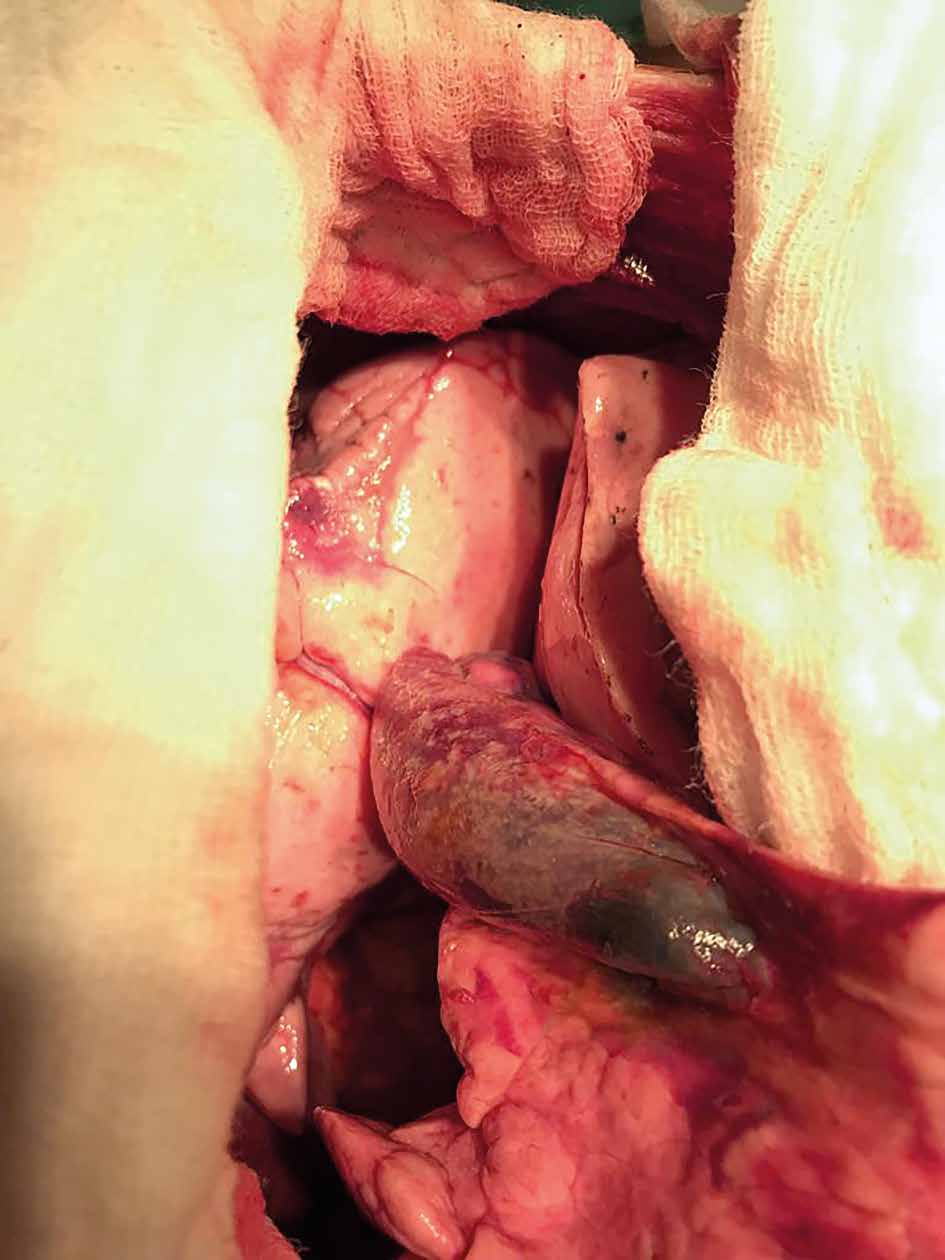Abstract
Introduction: COVID-19 is considered a respiratory virosis in its classic form, although it may present with heterogeneous symptoms. Thoracic complications occur in a small percentage of patients. Our objective was to evaluate existing experience with this disease and its thoracic manifestations and to determine the real-world status of care of these patients.
Methods: This study is a retrospective, single-institution analysis of a group of patients hospitalized with acute and post-acute COVID-19 pneumonia at Thomayer Hospital in Prague in the period from December 2020 to March 2022 and indicated for a thoracic surgical procedure.
Results: During the peak of COVID-19 pandemic, a thoracic intervention was performed in 46 admitted patients. Thoracic drainage (due to pneumothorax in 18 cases, fluidothorax in 3 cases, CT-guided lung abscess drainage in 2 cases, and CT-guided pneumatocele drainage in 2 cases) were the most common thoracic surgical procedures. Pleurectomy/decortication surgery was done in 10 cases. Additionally, 12 lung parenchyma-sparing resections were performed, while lobectomy was required in 2 cases. Resection of postintubation tracheal stenosis due to a severe course of COVID-19 pneumonia was indicated in 2 patients.
Conclusion: Even mild COVID-19 may cause a considerable morphological a functional alteration of the respiratory system. The most common complications of COVID-19 pneumonia that require a thoracic surgical intervention include pathologies associated with an air leak and accumulation of air (pneumothorax, pneumomediastinum and subcutaneous emphysema). The development of pulmonary necrosis, symptomatic bronchiectasis, pneumatocele, and bullous-fibrotic formations may result in pneumothorax, hemothorax or thoracic empyema in sporadic cases. An early thoracic surgical intervention to treat thoracic complications of COVID-19 pneumonia can improve the survival of COVID-19 patients.

